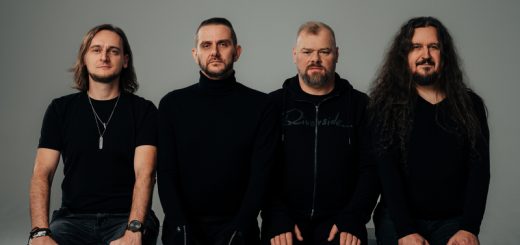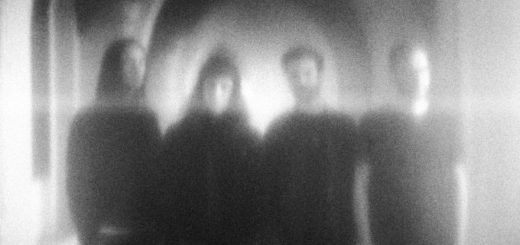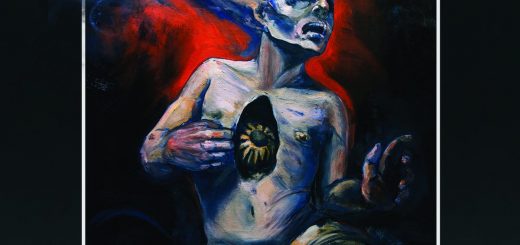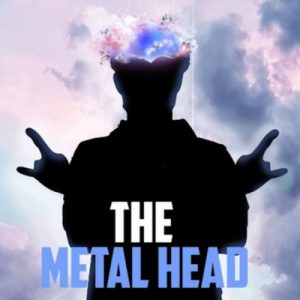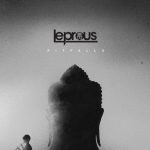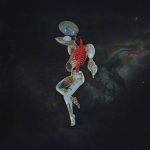Avenged Sevenfold: ‘Life is But a Dream…’ Review
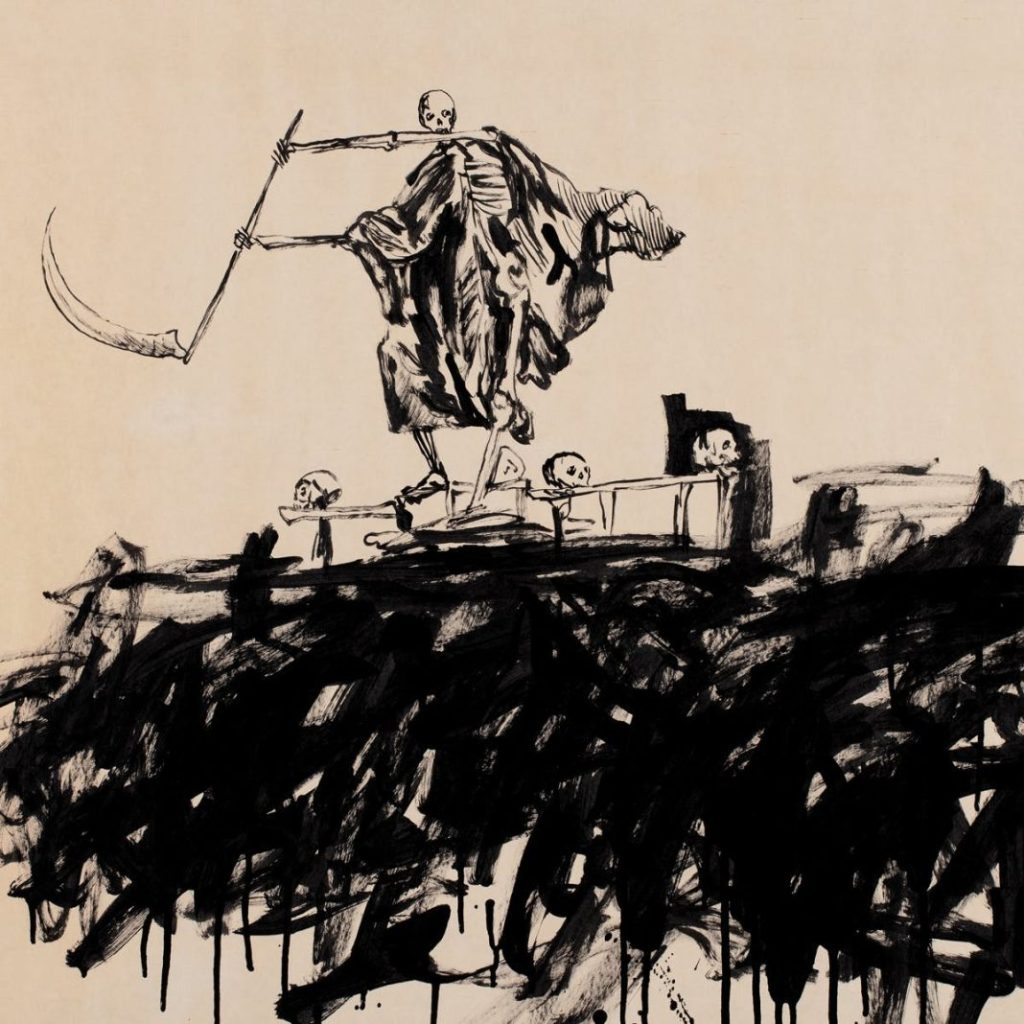
Album artwork for ‘Life is But a Dream…’
So there’s a new Avenged Sevenfold album. For those somehow living under a rock, Avenged Sevenfold (sometimes affectionately referred to as A7X for short) have been at the forefront of hard rock and metal for nearly two decades. A napkin history follows:
A7X’s success was initially achieved with two mainstream breakout records – Waking the Fallen and City of Evil – blending catchy hooks with ambitious songwriting and frankly ridiculous lead guitar and drums. Following this, their self-titled record further established their potential for eclecticism, throwing in a country ballad and whatever A Little Piece of Heaven is. Tragedy struck a couple years later; the band had just finished writing their next record – Nightmare – with a darker, more conceptual bend, before their drummer, Jimmy “The Rev” Sullivan, died in his sleep. The record was repurposed as a tribute with Mike Portnoy playing the parts.
With the nightmare over (see what I did there?), the band set about their next record – enter unknown drummer Arin Ilejay and an interest in writing some hits. Hail to the King drops to less than favourable critical acclaim but enough mainstream buzz to elevate the band to coveted stadium status. Soon after, and replacing Ilejay, say hello to Brooks Wackerman, the second most appropriately named drummer in the business (pole position to his brother Chad). Following this we see the surprise release of The Stage, an album that really commits to the eclecticism and progressive bend in their previous records and takes it a step further. A seven year wait ensues for the latest album, and… here we are.
You’re all caught up now, but why does any of that matter?
Context is necessary before really analysing this record for what it is as Avenged are a band that have achieved a rare thing – they’ve genuinely grown over the years alongside their audience. It would be very easy for a band of this calibre and relative mainstream status to create the same record over and over again. While some of the band’s signature dual lead guitar segments and drumming staples have stuck around over the years, there’s a genuine effort to differentiate each record. Beyond this, time is a very real thing: the fans who picked up City of Evil as a teenager are in their 30s now.
This leaves Life is But a Dream… in a rather divisive position because the fanbase has split into two. In the blue corner, you have the hit-loving, head-banging fans that just want something fun and digestible – and in the red corner, you have the fans that have carried through the more eclectic adventures the band have taken as a gateway into more progressive and avant-garde pastures. Much like The Stage, this album thoroughly surfaces fans in the latter category.
I’m a few paragraphs in now, so I should probably start talking about the album: we begin with Game Over and some floaty acoustic guitar setting the scene before the drums kick in, propelling us firmly into some of the thrashiest material the band have released so far. A slight return to normal programming as resident virtuoso guitarist Synyster Gates rips out the first of many impressive solos, while Wackerman furiously does what he does best in the background.
A slight reprieve before kicking straight into Mattel, which drags itself into even heavier territory in places with a ballad style in others. A very strange electric piano solo kicks into boot, ripping right into yet another great solo on the guitar and then switching between the two effortlessly. As M. Shadows starts crooning about plastic daisies you realise that he firmly fits into what I like to call the “Anthony Kiedis club of singers who aren’t incredibly technically proficient but are absolutely necessary for the band to function as they do” – where he lacks in terms of a huge vocal range he more than makes up for in charisma, taking charge of these songs in such a way that any other vocalist would not make sense.
What follows are the tracks Nobody and We Love You, the former taking strides into an almost industrial “wall of sound” in its main riff and then taking an entirely different orchestral turn in its massive solo section with orchestral backing from the San Bernardino Symphony. We Love You doesn’t mess around, boasting a catchy hook strewn between huge variances in tempo and dynamics, culminating in the biggest “yeehaw moment” the record has to offer. It would be difficult to describe almost any song on this record as outright accessible but these two are perhaps the closest to that. The tracks also do well to showcase the album’s lyrical themes, which are inspired by Albert Camus’ literature drawing on existentialism and the absurdity of life. It makes sense, then, that the songs themselves are equally absurdist in nature.
Cosmic enters the fray next, initially placing itself in a slightly Floydian realm, cemented by the song’s lengthy centrepiece solo, gaining in complexity and pace presumably as we travel further across the universe. Gates’ lead guitar reaches a peak, eventually relenting in favour of a softer vocal-driven section, once again with orchestral backing. This time, however, the orchestral movement is well contrasted with some wacky synthesiser placement – the kind that wouldn’t be out of place on a Daft Punk album. As the song reaches its climax, it’s clear that this is not just an album highlight but a potential fan favourite for years to come. Up next is Beautiful Morning – a surprisingly sneaky album highlight that absolutely wears its grungier influences on its sleeves while also boasting some lovely softer sections. Following on from this is Easier – an all-too-brief addition that is genuinely easy listening compared to what’s to come, complete with some great vocoder use. This wouldn’t be out of place on a Faith No More record!
Now we approach the meatiest section of the record – the G-O-D suite: Shadows is basically having his “let there be light” moment lyrically on G as the song twists and bends around in an incredibly fusiony way. This is a song that might honestly feel at home on a Zappa record – or would at least be able to convincingly skulk around in a bush in his front garden. As quickly as it came and went we immediately drift into the world of funk as O(rdinary) grooves its way into your brain. A catchy riff and vocoded lyrics really add to the drama and off-kilter vibe this track oozes. Potentially the biggest deviation from the core Avenged Sevenfold sound to date, and a firm favourite of mine. It all caps off with the grimdark spectre of (D)eath, a bizarre take on the classic piano ballad, with Shadows crooning rather effectively about the protagonist’s plight. Following this is the title track of Life is But a Dream… to effectively play us out, an instrumental piano piece, left-field once again for the band yet perfectly befitting as an ending.
Fin.
…Is what you’d say if this was a classy 1950’s new-wave film. As Avenged Sevenfold albums go, it’s the closest they’ve reached to that overall aesthetic yet. The almost cinematic quality on display on some of the tracks – particularly Cosmic and the G-O-D suite – evokes some incredible mental imagery when listened to attentively. I’ve sung its praises near constantly and I should stress that it’s not an album without flaws – elements of the mix are questionable, Johnny Christ’s bass parts are not particularly exciting and as an album it doesn’t feel as consistent to me as The Stage did (I don’t know that Avenged, to my mind, will ever defeat Fermi Paradox in my personal best song rankings), but I can safely say I’m very much into it. But will you be?
First impressions may deceive, as the honest truth is that this album is what I would describe as “a lot.” Life is But a Dream… is going to require commitment, relistening, reevaluating and understanding. If you’re an existing fan of Avenged Sevenfold, you’ll either find a lot to love or a lot to loathe depending on your taste, your mindset, and your propensity for weird guitar bullshit. If you’re just getting into the band now, this is a very interesting entry point indeed. In the fields of artistic growth and development, Life is But a Dream… is very much uncontested when compared with the direction many bands of similarly mainstream status take. What you see (and indeed hear) is not necessarily what you get with this one. Enjoy. Or don’t. I’m not your boss.

